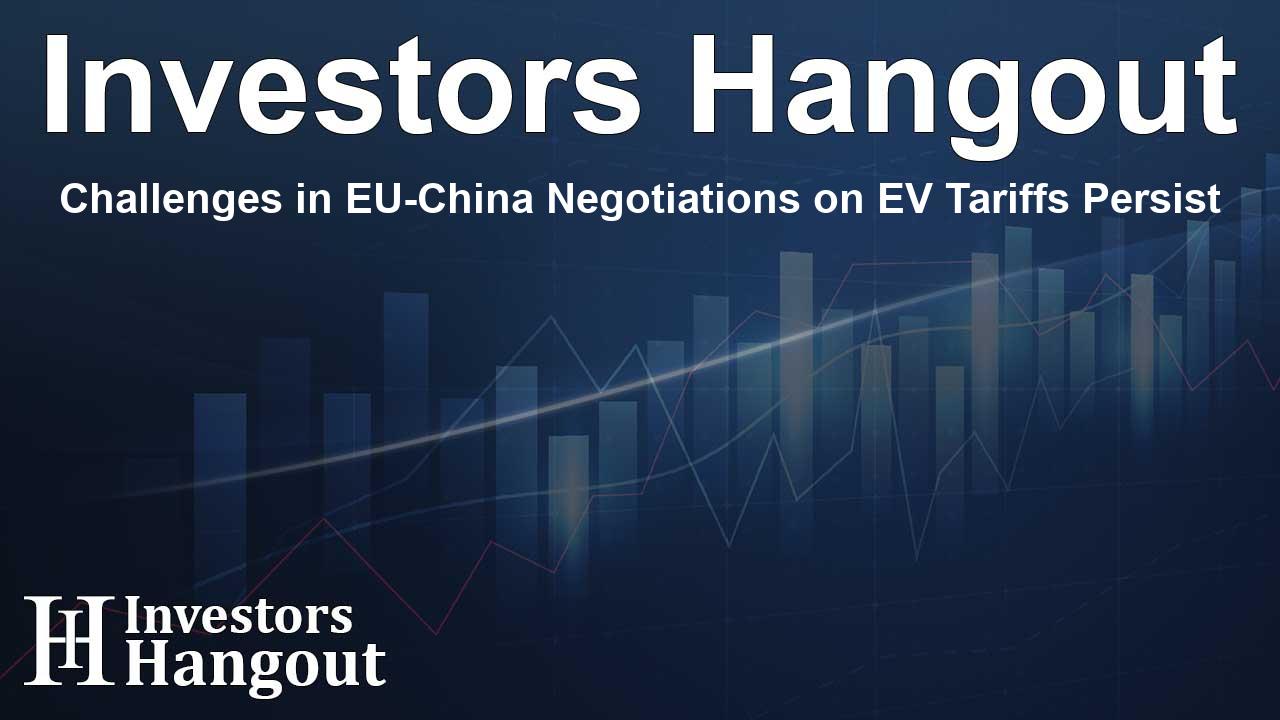Challenges in EU-China Negotiations on EV Tariffs Persist

Ongoing Negotiations Between the EU and China
Recently, discussions have intensified between European Union (EU) and Chinese officials regarding the tariffs imposed on electric vehicles (EVs) from China. While numerous alternatives are being explored, an immediate resolution remains elusive, as acknowledged by European officials. These talks seek solutions that could enable the import of Chinese EVs while addressing market concerns.
Current Status of EV Tariff Discussions
Despite hints of progress, EU and Chinese officials still face significant hurdles. Bernd Lange, the chairman of the European Parliament's trade committee, had indicated that negotiations to replace existing tariffs might be nearing fruition. However, anonymous sources within the EU disclosed that this assertion is premature. The discussions continue to grapple with unresolved issues that hinder agreement.
Minimum Price Proposal on Imported Electric Vehicles
One potential alternative under consideration is the establishment of a minimum price for electric vehicles imported from China. This proposal aims to mitigate the EU’s concerns regarding the artificially low pricing of these vehicles, attributed to substantial state subsidies from China. The EU contends that such subsidies undermine fair competition and market balance.
Impact of Increased Tariffs on Chinese EVs
To combat perceived unfair advantages for Chinese manufacturers, the EU recently escalated tariffs on Chinese-made EVs, raising them as high as 45.3% in a notable trade probe. This action is viewed as one of the EU’s most significant moves yet to protect its automotive sector, leading to divisions within the EU and prompting retaliatory measures from Beijing. In response to these tariffs, China’s Chamber of Commerce to the EU expressed deep disappointment, characterizing the EU measures as 'protectionist' and 'arbitrary.'
Future Outlook for EU-China Trade Relations
The landscape of EU-China trade relations in the electric vehicle sector is complex and dynamic. There is a pressing need for both sides to find middle ground to foster a trade environment that promotes fairness while encouraging technological innovation. The outcome of the current discussions could set a precedent for future engagements between the two economic powers.
Frequently Asked Questions
What are the EU's current tariffs on Chinese electric vehicles?
The EU has raised tariffs on some Chinese-built electric vehicles to as high as 45.3% as part of its trade investigation efforts.
What alternatives to tariffs are being discussed?
Negotiations include exploring the establishment of minimum pricing for imported electric vehicles to counteract subsidized pricing.
Why did the EU increase tariffs on Chinese EVs?
Tariffs were increased to address concerns about artificially low prices resulting from Chinese state subsidies that undermine competition.
How has China reacted to the EU's tariff increase?
China has expressed disappointment over the EU's tariff measures, labeling them as protectionist and arbitrary.
What is the outlook for EU-China relations regarding EV trade?
The future remains uncertain, but ongoing negotiations are crucial for establishing a fair and balanced trade environment.
About Investors Hangout
Investors Hangout is a leading online stock forum for financial discussion and learning, offering a wide range of free tools and resources. It draws in traders of all levels, who exchange market knowledge, investigate trading tactics, and keep an eye on industry developments in real time. Featuring financial articles, stock message boards, quotes, charts, company profiles, and live news updates. Through cooperative learning and a wealth of informational resources, it helps users from novices creating their first portfolios to experts honing their techniques. Join Investors Hangout today: https://investorshangout.com/
Disclaimer: The content of this article is solely for general informational purposes only; it does not represent legal, financial, or investment advice. Investors Hangout does not offer financial advice; the author is not a licensed financial advisor. Consult a qualified advisor before making any financial or investment decisions based on this article. The author's interpretation of publicly available data shapes the opinions presented here; as a result, they should not be taken as advice to purchase, sell, or hold any securities mentioned or any other investments. The author does not guarantee the accuracy, completeness, or timeliness of any material, providing it "as is." Information and market conditions may change; past performance is not indicative of future outcomes. If any of the material offered here is inaccurate, please contact us for corrections.